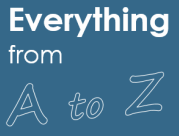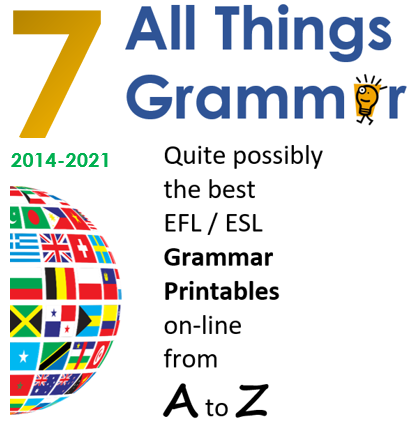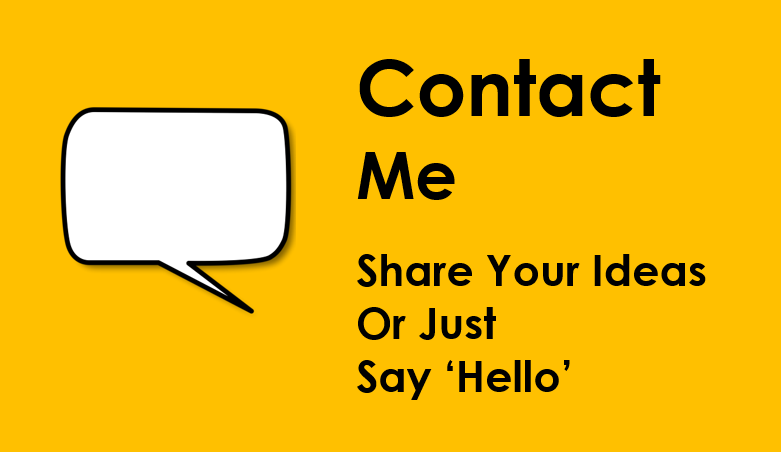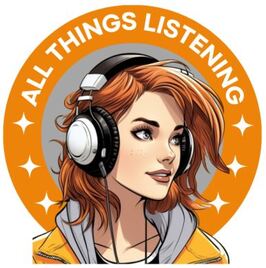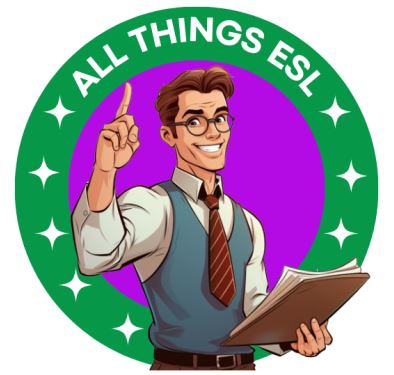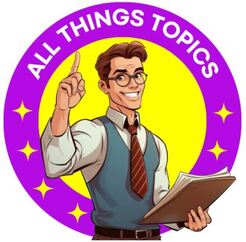Quality ESL grammar worksheets, quizzes and games - from A to Z - for teachers & learners
HOW TO TEACH GRAMMAR
HOW TO TEACH GRAMMAR
Many of my site visitors are new to the field of ESL teaching. Some are even parents who want to provide extra help for their kids, but aren't sure about where to begin. Therefore, it is very understandable that the following question I was asked yesterday is one that I have been asked many times in the past: "What is a good sequence of grammar to teach?" My answer below is based partly on the CEFR model - and partly on my own 10 years as a ESL teacher trainer and 30 years as an ESL teacher.
The order of the grammar topics below follows the order in which I would personally teach them (most of the time). However, you may be following a grammar textbook or other mandated course plan that says otherwise. The following sequence is a suggestion only.
I hope it helps provide useful general guidance!
~Robert
The order of the grammar topics below follows the order in which I would personally teach them (most of the time). However, you may be following a grammar textbook or other mandated course plan that says otherwise. The following sequence is a suggestion only.
I hope it helps provide useful general guidance!
~Robert
Beginner
More accurately "false beginner" level - in which students already know the alphabet and have a basic (but limited) vocabulary.
More accurately "false beginner" level - in which students already know the alphabet and have a basic (but limited) vocabulary.
Parts of Speech
Nouns, adjectives and verbs are the main parts of speech beginner level students should know. There is little need to introduce other parts of speech at this point.
Nouns, adjectives and verbs are the main parts of speech beginner level students should know. There is little need to introduce other parts of speech at this point.
Adjectives
examples: big, small, young, old, rich, poor, tall, short, hot, cold, etc.
examples: big, small, young, old, rich, poor, tall, short, hot, cold, etc.
Be Verb + Statements
example 1: "I am young."
example 2: "You are tall.
example 3: "He/She/It is tired."
example 4: "We are hungry."
example 5: "They are noisy."
example 1: "I am young."
example 2: "You are tall.
example 3: "He/She/It is tired."
example 4: "We are hungry."
example 5: "They are noisy."
Be Verb + Negative Statements
example 1: "I am not young."
example 2: "You are not tall."
example 3: "He/She/It is not tired."
example 4: "We are not hungry."
example 5: "They are not noisy."
example 1: "I am not young."
example 2: "You are not tall."
example 3: "He/She/It is not tired."
example 4: "We are not hungry."
example 5: "They are not noisy."
Be Verb + Questions (and Short Answers)
example 1: "Is she young? - Yes, she is."
example 2: "Are you tall? - No, I'm not."
example 1: "Is she young? - Yes, she is."
example 2: "Are you tall? - No, I'm not."
Present Simple + Statements
example 1: "I study English."
example 2: "You study English."
example 3: He/She/It studies English."
example 4: "We study English."
example 5: "They study English."
Students should pay particular attention to the way the verb changes as in example 3.
example 1: "I study English."
example 2: "You study English."
example 3: He/She/It studies English."
example 4: "We study English."
example 5: "They study English."
Students should pay particular attention to the way the verb changes as in example 3.
Present Simple + Questions
Elementary
Present Continuous + Statements
Present Continuous + Questions
Intermediate
Advanced
